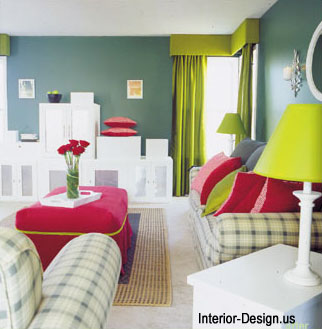But Michael Riley isn’t like most gardeners. Mr. Riley, a former commodities trader turned plant expert who went on to become assistant director of the Horticultural Society of New York, was eager to move beyond potted plants in a way that hadn’t yet occurred to many others. It took a number of expeditions, a lot of research and more than a decade and a half, but by 2003 he had figured out how to grow a wall of plants inside his Upper West Side apartment.
“In the rain forest, I realized that plants didn’t need to grow in pots with labels,” said Mr. Riley, 64. “I wanted to grow plants in ways that were natural to them.”
With his partner, Francisco Correa, a Spanish teacher who is now 52, Mr. Riley attacked a corner of his living area, stripping the walls of plaster and affixing exterior-grade plywood to new and existing building studs. On top of the plywood went bitumen roofing to protect the walls. Cork bark was then stapled over that, and plants were inserted into pockets in the cork. Sprinklers and lighting were installed overhead, trenches were put in at the base of the walls to catch water that trickled down, and pools were added in the middle of the room to increase humidity.
These days, Mr. Riley’s project isn’t that unusual. Vertical gardens — which began as an experiment in 1988 by Patrick Blanc, a French botanist intent on creating a garden without dirt — are becoming increasingly popular at home. Avid and aspiring gardeners, frustrated with little outdoor space, are taking another look at their walls and noticing something new: more space. And a number of companies are selling ready-made systems and all-in-one kits for gardeners like Mr. Riley who want to do it themselves. (For those who prefer to leave it to the professionals, landscape designers can build vertical gardens for a hefty fee.)
In the last few years, companies that sell green wall supplies have seen a jump in sales. ELT, an Ontario company that specializes in green roofs, began selling living wall systems a little over three years ago and is now one of the biggest suppliers to the United States. Greg Garner, the company’s president, said that its green-wall sales have increased 300 percent since 2008. Four months ago, the company introduced a cheaper, lighter kit to make living walls accessible to the average gardener; prices start at about $40 for a one-square-foot panel.
“We’ve turned living walls into something anyone can do,” Mr. Garner said. “The walls have gone from zero percent of our business leads to 80 percent of our business, and it’s happening all over the place, from the Middle East to North America to Europe.”
Another big living-wall company, Gsky Plant Systems in Vancouver, British Columbia, was founded four years ago as a green roof supplier but now focuses almost exclusively on vertical gardens, which it designs, installs and maintains for around $125 a square foot. Hal Thorne, Gsky’s chairman, said the company’s growth in the last year “was phenomenal — we nearly doubled sales.”
Many of the modular systems — essentially plastic trays filled with dirt and attached to a wall, with a sprinkler or drip irrigation system installed above — differ dramatically from Patrick Blanc’s living walls, which can be seen in commercial and institutional buildings around the world, including the Athenaeum hotel in London and the Musée du Quai Branly in Paris.
Mr. Blanc, who was inspired by tropical rain-forest plants he had studied, knew plants could survive on water and fertilizer alone, and developed a system for growing them on walls lined with felt. The living wall was part of his effort to bring greenery into cities. “When you live in towns, you don’t always go into gardens,” he said. “It’s really important to use empty spaces to invite nature into town.”





















No comments:
Post a Comment